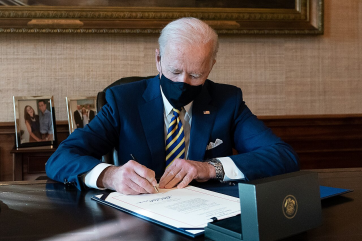Photo : BOC-3 And Other Legal Requirements For Trucking Business
The Department of Transportation (DOT) regulates and controls trucking companies. That said, if you plan to run a trucking business, you must know everything about the basics, including what is BOC-3. Additionally, you are also required to adhere to the federal state's guidelines for intra- and interstate transportation.
Understandably, some documents are maintained at your backup office, whereas other business paperwork is kept with you as you transport cargo and go on with your trucking business.
Register Your Trucking Business as a State Business
This is the first step to establishing your business entity. Firstly, you need to register legally before you can apply for the BOC-3 filing and DOT license and other relevant permits. Typically, this registration is done at the office of the secretary of state or on their website. After the proper registration of your trucking business, your business entity gets legally established.
Obtain a Tax Identification Number
Next, your trucking business needs a tax identification number. You can think of the tax identification similar to the social security numbers that individuals get. You can get a tax identification number for your business from the IRS (Internal Revenue Service) website. Typically, this free number is provided immediately. The tax identification number is subsequently needed when you open business accounts at banks and apply for licensing and other permits.
If the trucks weigh above 55 thousand pounds, the IRS demands a special tax return connected with the infrastructure budgets. If you drive the trucks less than five miles each year, you will have available credits. However, most big trucking companies are required to pay taxes after completing Form 2290 of the Heavy Highway Use Tax Return.
Getting a CDL
When we talk about the trucker's driving license, it needs to be of category A that the driver must maintain. Understandably, the driver must have a clean driving record and must pass through all drug screening tests.
The trucker's Class A driving license is known as CDL (Commercial Driver's License), which is typically obtained after the driver has taken a commercial trucking class approved by the DMV. The DMV-approved trucking class ensures that all specific rules and regulations are covered while all potential dangers and hazards are properly addressed.
Getting a DOT Number
Moving on to the U.S. DOT number, the DOT number indicates that the trucking business is properly registered with the U.S. Department of Transportation. You are provided with a provisional permit besides receiving the US DOT number. The provisional permit remains with you until the new Entrant Safety Assurance Program is completed, which is approximately 18 months.
After the successful completion of the program, your USDOT number and permit become permanent. Remember to stencil the DOT number on the truck where it is easily visible. Also, while keeping the originals of the permit paperwork at the office, make sure to keep the copy with you at all times.
Go For a Commercial Liability Insurance
Having insurance is mandatory as the insurance policy is required for the approval of the DOT. That said, you must not only have a liability policy to safeguard you from liability, but you also need a surety bond of $75,000 to protect you from cargo loss of the minimum value of $75,000. While you maintain the declaration page of the commercial liability insurance at the office, you must keep the insurance cards in the truck with you at all times.
Since each state has its respective set of requirements related with cargo and transportation, all trucking businesses must check in with their local DMV to assess which state transportation permits are required. The permits might be needed for oversized or hazardous cargo. Also, if you cross state lines, you need state transportation permits. Make sure to keep all relevant permits inside the truck while you are on the go. This is mandatory so that nothing unpleasant occurs when you are stopped and demanded to produce the permits.
Lastly, make sure to keep a physical office for the proper maintenance of all paperwork and documentation. Having a physical office at a fixed location also ensures that no paperwork is lost and everything is kept and maintained in a professionally organized way.
* This is a contributed article and this content does not necessarily represent the views of universityherald.com









